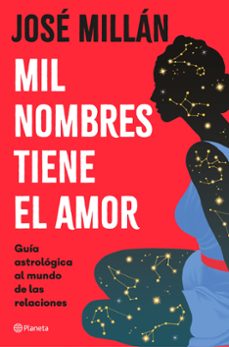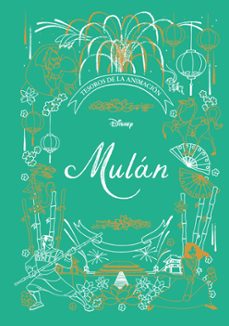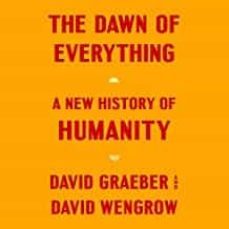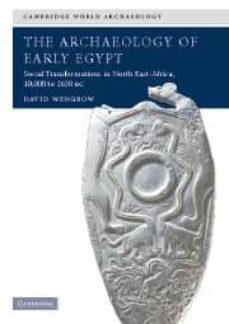Imprescindibles
Ficción
No Ficción
Ciencias y tecnología Biología Ciencias Ciencias naturales Divulgación científica Informática Ingeniería Matemáticas Medicina Salud y dietas Filología Biblioteconomía Estudios filológicos Estudios lingüísticos Estudios literarios Historia y crítica de la Literatura
Humanidades Autoayuda y espiritualidad Ciencias humanas Derecho Economía y Empresa Psicología y Pedagogía Filosofía Sociología Historia Arqueología Biografías Historia de España Historia Universal Historia por países
Infantil
Juvenil
#Jóvenes lectores Narrativa juvenil Clásicos adaptados Libros Wattpad Libros Booktok Libros de influencers Libros de Youtubers Libros Spicy Juveniles Libros LGTBIQ+ Temas sociales Libros ciencia ficción Libros de acción y aventura Cómic y manga juvenil Cómic juvenil Manga Shonen Manga Shojo Autores destacados Jennifer L. Armentrout Eloy Moreno Nerea Llanes Hannah Nicole Maehrer
Libros de fantasía Cozy Fantasy Dark academia Hadas y Fae Romantasy Royal Fantasy Urban Fantasy Vampiros y hombres lobo Otros Misterio y terror Cozy mistery Policiaca Spooky Terror Thriller y suspense Otros
Libros románticos y de amor Dark Romance Clean Romance Cowboy Romance Mafia y amor Romance dramatico Romcom libros Sport Romance Otros Clichés Enemies to Lovers Friends to Lovers Hermanastros Slow Burn Fake Dating Triángulo amoroso
Cómic y manga
Novela gráfica Novela gráfica americana Novela gráfica europea Novela gráfica de otros países Personajes, series y sagas Series y sagas Star Wars Superhéroes Cómics DC Cómics Marvel Cómics otros superhéroes Cómics Valiant
eBooks
Literatura Contemporánea Narrativa fantástica Novela de ciencia ficción Novela de terror Novela histórica Novela negra Novela romántica y erótica Juvenil Más de 13 años Más de 15 años Infantil eBooks infantiles
Humanidades Autoayuda y espiritualidad Ciencias humanas Economía y Empresa Psicología y Pedagogía Filosofía Historia Historia de España Historia Universal Arte Cine Música Historia del arte
Ciencia y tecnología Ciencias naturales Divulgación científica Medicina Salud y dietas Filología Estudios lingüísticos Estudios literarios Historia y crítica de la Literatura Estilo de vida Cocina Guías de viaje Ocio y deportes
David Wengrow
David Wengrow es profesor de Arqueología Comparada en el University College de Londres. Entre 2001 y 2004 obtuvo la beca Henri Frankfort del Warburg Institute y la del Christ Church College de Oxford. Ha realizado excavaciones arqueológicas en África y Oriente Medio, y entre sus libros destaca What Makes Civilization?
Recibe novedades de DAVID WENGROW directamente en tu email
Filtros
Del 1 al 3 de 3
DK 9780241402429
THE NEW YORK TIMES BESTSELLER AND SUNDAY TIMES, OBSERVER AND BBC HISTORY BOOK OF THE YEAR'Pacey and potentially revolutionary' Sunday Times'Iconoclastic and irreverent ... an exhilarating read' The Guardian'This is not a book. This is an intellectual feast' Nassim Nicholas TalebFor generations, our remote ancestors have been cast as primitive and childlike - either free and equal, or thuggish and warlike. Civilization, we are told, could be achieved only by sacrificing those original freedoms or, alternatively, by taming our baser instincts. David Graeber and David Wengrow show how such theories first emerged in the eighteenth century as a reaction to indigenous critiques of European society, and why they are wrong. In doing so, they overturn our view of human history, including the origins of farming, property, cities, democracy, slavery and civilization itself.
Ver más
Tapa dura
CAMBRIDGE UNIVERSITY PRESS 9780521543743
In this fresh, authoritative and compelling survey of the archaeology of early Egypt, David Wengrow offers a new interpretation of the emergence of farming economies and the dynastic state, c.10,000 to 2,650 BC. Exploring key themes such as the nature of state power, kingship and the inception of writing, Wengrow illuminates prehistoric social development along the Nile through comparison with neighbouring regions. Detailed analysis of the archaeological record reveals the interplay between large-scale processes of economic and political change and intimate material practices through which social identities were transformed, focussing upon ritual treatments of the dead. Employing rich empirical data and engaging critically with anthropological theory and the history of archaeological thought, Wengrow's work challenges the current theoretical isolation of Egyptian prehistory and breaches the methodological boundaries that separate prehistory from Egyptology. It is essential reading for anybody with an interest in ancient Egyptian civilisation or early state formation.
Ver más
Tapa blanda
BELLATERRA 9788472903838
La historia de la arqueología se ha convertido en los últimos años en una herramienta fundamental para comprender la práctica arqueológica. Por primera vez los historiadores de la arqueología se hacen eco de los debates teóricos y metodológicos que se producen en el seno de la historia de la ciencia presentismo, inter¬nalistas versus externalistas y defienden la impor¬tancia de esta disciplina para el progreso de la ciencia. El cambio de orientación se produjo a finales de los años ochenta y durante los años noventa, cuando algunos historiadores de la arqueología (Trigger, Richard, Christenson) asumieron la importancia de considerar el contexto social, económico, político y cultural a la hora de estudiar el desarrollo del conocimiento arqueoló¬gi¬co. La historia de la arqueología ya no es una mera crónica del progreso científico, sino una parte esencial de la teoría arqueológica. Buen conocedor de la historia de la ciencia y discípulo de Bruce G. Trigger, el autor muestra cómo la historia de la arqueología debe constituir un instrumento de reflexión fundamental a propósito de la práctica arqueológica. En su análisis crítico de la historiografía arqueológica, Oscar Moro considera que esta no ha escapado totalmente del tipo de historia tradicional que denuncia, es decir, aquella que simplifica el pasado para legitimar el presente, sirviendo a los intereses dominantes de la sociedad y a determinados discursos ideológicos.
Ver más
Tapa blanda
Del 1 al 3 de 3
























